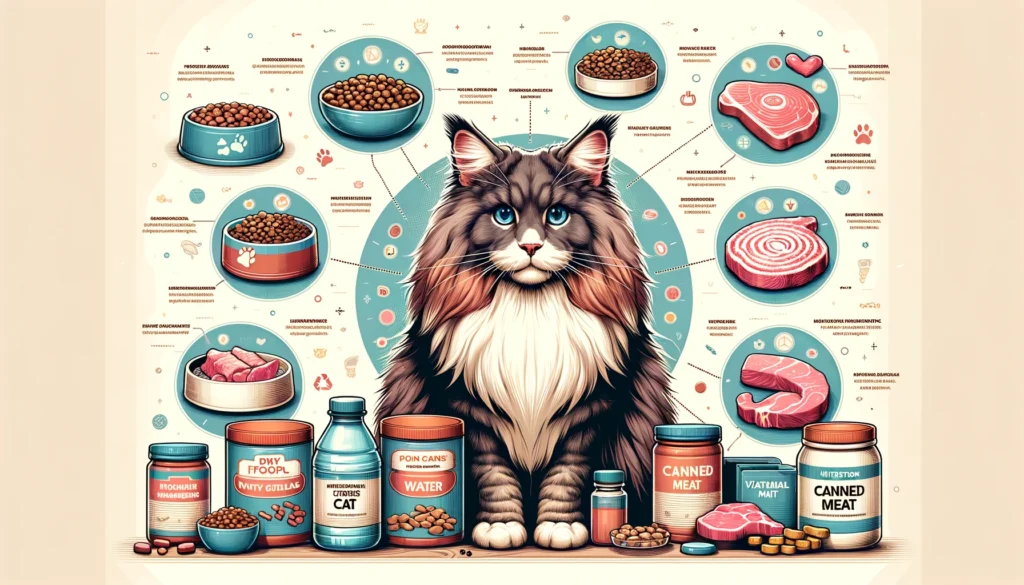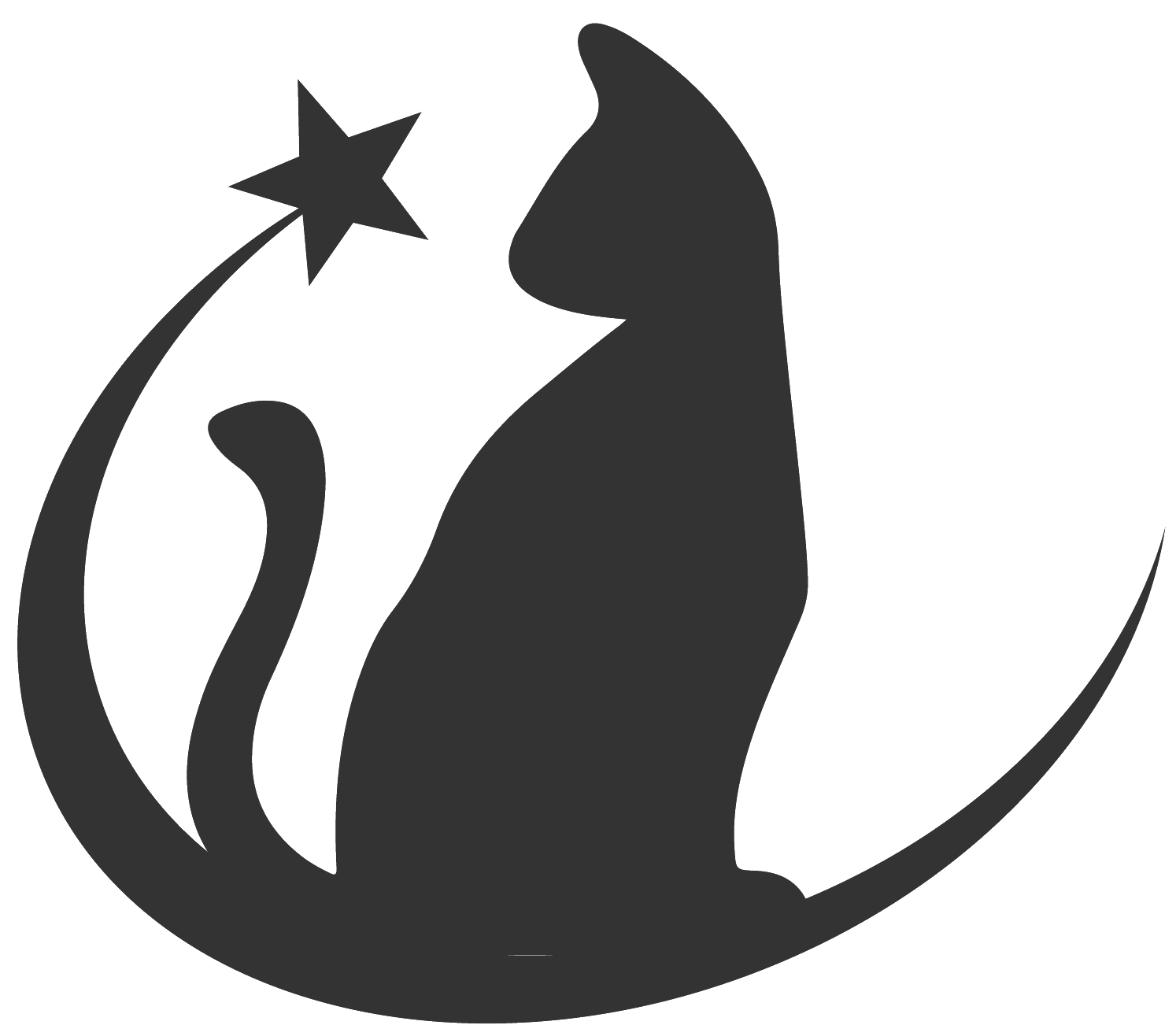
Maine Coon cats, known for their majestic appearance and playful nature, have specific dietary needs that must be met to ensure they lead healthy and happy lives. This guide explores the essentials of Maine Coon cat nutrition, offering insights into what makes a balanced diet and how to cater to their unique nutritional requirements.
Understanding the Unique Needs of Maine Coon Cats
Maine Coon cats are one of the largest domesticated cat breeds, requiring more calories and nutrients compared to smaller cats. Their muscular bodies and thick fur demand a diet rich in high-quality proteins, fats, and other essential nutrients. Understanding these unique needs is the first step towards providing a diet that supports their health and well-being.
The Importance of a Balanced Diet
A balanced diet is crucial for maintaining the overall health of Maine Coon cats. This means ensuring they receive the right mix of proteins, fats, carbohydrates, vitamins, and minerals. Each of these components plays a vital role in supporting various bodily functions and promoting optimal health.
Essential Nutrients for Maine Coon Cats
Maine Coon cats require a variety of nutrients to thrive. Proteins are vital for muscle maintenance and growth, while fats provide energy and support skin and coat health. Carbohydrates should be included in moderation, and vitamins and minerals are necessary for various physiological processes. Ensuring a balanced intake of these nutrients is essential for your cat’s well-being.
Protein Requirements
Proteins are the building blocks of life and are especially important for Maine Coon cats, given their size and activity level. High-quality protein sources such as chicken, turkey, and fish should form the cornerstone of their diet.
Importance of High-Quality Protein Sources
Not all proteins are created equal. High-quality animal proteins provide the essential amino acids that Maine Coon cats need for muscle development, tissue repair, and energy. These proteins are more digestible and bioavailable, making them a superior choice for your feline friend.
Fats and Fatty Acids
Fats are a critical component of a Maine Coon cat’s diet, providing a concentrated source of energy and supporting various bodily functions.
Role of Omega-3 and Omega-6 Fatty Acids
Omega-3 and Omega-6 fatty acids are essential for maintaining healthy skin and a shiny coat, reducing inflammation, and supporting brain health. Foods rich in these fatty acids, such as fish oil and flaxseed, should be included in your cat’s diet.
Carbohydrates in a Cat’s Diet
While cats are obligate carnivores and do not require carbohydrates in large amounts, moderate inclusion of carbohydrates can provide a source of energy and fiber.
Managing Carbohydrate Intake for Optimal Health
It’s important to manage carbohydrate intake to prevent obesity and maintain digestive health. Opt for complex carbohydrates such as sweet potatoes and peas, which offer nutritional benefits without spiking blood sugar levels.
Vitamins and Minerals
Vitamins and minerals are vital for the proper functioning of a Maine Coon cat’s body. These micronutrients support everything from bone health to immune function.
Key Vitamins and Minerals for Maine Coon Cats
Essential vitamins and minerals include vitamin A, D, E, B-complex vitamins, calcium, phosphorus, and taurine. These nutrients should be included in appropriate amounts to prevent deficiencies and support overall health.
Hydration and Water Intake
Proper hydration is crucial for Maine Coon cats to maintain healthy kidneys and overall bodily functions. Ensuring they drink enough water is essential, especially if they consume a dry food diet.
Ensuring Proper Hydration
Providing fresh water at all times and incorporating wet food into their diet can help maintain proper hydration levels. Cats often prefer running water, so a cat water fountain can encourage them to drink more.
Commercial Cat Food vs. Homemade Diets
Choosing between commercial cat food and homemade diets can be challenging. Each option has its pros and cons, and the decision should be based on your cat’s specific needs and your ability to meet those needs.
Choosing the Right Feeding Strategy
Commercial cat foods are convenient and nutritionally balanced, but homemade diets offer control over ingredients and quality. Whichever option you choose, ensure it meets the nutritional requirements of Maine Coon cats.
Wet Food vs. Dry Food
Deciding between wet and dry food is another important consideration. Both types have benefits and drawbacks that should be weighed carefully.
Pros and Cons of Wet and Dry Cat Food
Wet food is beneficial for hydration and often more palatable, while dry food is convenient and helps with dental health. A mix of both can provide balanced nutrition and cater to your cat’s preferences.
Understanding Cat Food Labels
Reading and understanding cat food labels is essential to ensure you’re providing high-quality nutrition to your Maine Coon cat.
Deciphering Ingredients and Nutritional Information
Look for foods that list specific protein sources as the first ingredient and avoid those with fillers like corn and soy. Understanding terms like “complete and balanced” can help you choose the best options for your cat.
Feeding Schedule and Portion Control
Establishing a regular feeding schedule and controlling portions is key to preventing overeating and maintaining a healthy weight.
Establishing a Healthy Feeding Routine
Feed your Maine Coon cat at the same times each day and measure portions according to their age, weight, and activity level. Consistency helps regulate their metabolism and prevents weight gain.
Dietary Supplements
Sometimes, dietary supplements are necessary to address specific health concerns or nutritional gaps in your cat’s diet.
When and Why to Use Supplements
Supplements such as omega-3 fatty acids, probiotics, and joint support can benefit Maine Coon cats, especially if they have specific health issues. Always consult your vet before adding supplements to your cat’s diet.
Treats and Snacks
Treats and snacks can be a fun way to bond with your cat, but they should be given in moderation to avoid weight gain and nutritional imbalances.
Healthy Treat Options for Maine Coon Cats
Choose healthy treats made from natural ingredients and avoid those with artificial additives. Treats should make up no more than 10% of your cat’s daily caloric intake.
Foods to Avoid
Certain foods are toxic or harmful to cats and should be avoided at all costs.
Harmful Foods for Maine Coon Cats
Foods such as chocolate, onions, garlic, grapes, and alcohol are toxic to cats. Additionally, avoid feeding them bones, raw eggs, and fatty scraps from your meals.
Special Dietary Considerations
Maine Coon cats may have special dietary needs based on their health status or life stage.
Addressing Health Issues through Diet
Conditions like kidney disease, diabetes, and allergies can often be managed through diet. Consult your vet to develop a dietary plan tailored to your cat’s specific needs.
Weight Management
Maintaining a healthy weight is crucial for the long-term health of Maine Coon cats.
Preventing Obesity in Maine Coon Cats
Monitor your cat’s weight regularly and adjust their diet and exercise routine as needed. Obesity can lead to serious health issues, so it’s important to take preventive measures.
Diet for Kittens
Maine Coon kittens have different nutritional needs compared to adult cats.
Nutritional Needs of Growing Maine Coon Kittens
Kittens require more protein, fat, and calories to support their rapid growth and development. Feed them a diet specifically formulated for kittens to ensure they get the right nutrients.
Diet for Senior Cats
As Maine Coon cats age, their dietary needs change.
Adjusting Diet for Older Maine Coon Cats
Older cats may require fewer calories but more specific nutrients like antioxidants and joint support. Choose senior cat food formulas that cater to their changing needs.
Raw Food Diets
Raw food diets are gaining popularity, but they come with both benefits and risks.
Benefits and Risks of Raw Feeding
Raw diets can provide natural, unprocessed nutrition, but they also carry risks of bacterial contamination and nutritional imbalances. If considering a raw diet, do thorough research and consult your vet.
Allergies and Food Sensitivities
Food allergies and sensitivities can cause discomfort and health issues in Maine Coon cats.
Identifying and Managing Food Allergies
Common allergens include certain proteins, grains, and additives. If your cat shows signs of allergies, work with your vet to identify the culprit and adjust their diet accordingly.
Dental Health and Nutrition
Diet plays a significant role in maintaining your cat’s dental health.
Importance of Diet in Maintaining Dental Health
Dry food can help reduce plaque buildup, while certain treats and supplements are designed to promote dental health. Regular dental check-ups and cleanings are also important.
Monitoring and Adjusting Diet
Regular monitoring of your cat’s health and diet is essential to ensure they remain in good condition.
How to Adjust Diet Based on Health Changes
If you notice changes in your cat’s weight, coat, or behavior, it may be time to adjust their diet. Regular vet check-ups can help you stay on top of any necessary dietary changes.
Behavioral Aspects of Feeding
Understanding your cat’s feeding behaviors can help you provide a more enjoyable and effective feeding experience.
Understanding Feeding Behaviors and Preferences
Cats can be picky eaters with specific preferences for food texture, flavor, and feeding times. Observing and adapting to these preferences can enhance their eating experience.
Veterinary Guidance
Regular veterinary guidance is crucial in maintaining the health of your Maine Coon cat.
Importance of Regular Check-Ups and Professional Advice
Your vet can provide personalized dietary recommendations based on your cat’s health status and any specific needs. Regular check-ups help catch potential issues early and keep your cat in optimal health.
Providing the right diet and nutrition for your Maine Coon cat is essential for their overall health and happiness. By understanding their unique needs and following the guidelines outlined in this article, you can ensure your feline friend enjoys a long, healthy, and fulfilling life.
FAQs
What should I feed my Maine Coon cat?
A balanced diet rich in high-quality proteins, fats, vitamins, and minerals is essential for Maine Coon cats. Include both wet and dry food, and consider their specific health needs.
How often should I feed my Maine Coon cat?
Establish a regular feeding schedule, typically feeding adult cats twice a day. Kittens may need more frequent meals to support their growth.
Are there any foods I should avoid giving my Maine Coon cat?
Yes, avoid toxic foods such as chocolate, onions, garlic, grapes, and alcohol. Additionally, steer clear of bones, raw eggs, and fatty scraps.
Can I give my Maine Coon cat supplements?
Supplements can be beneficial for specific health concerns, but always consult your vet before adding them to your cat’s diet to ensure they are necessary and safe.
How can I tell if my Maine Coon cat has food allergies?
Common signs of food allergies include skin irritations, digestive issues, and behavioral changes. If you suspect an allergy, work with your vet to identify and eliminate the allergen from their diet.
What is the best way to ensure my Maine Coon cat stays hydrated?
Provide fresh water at all times and incorporate wet food into their diet. Consider using a cat water fountain to encourage more water intake.
Sources:
